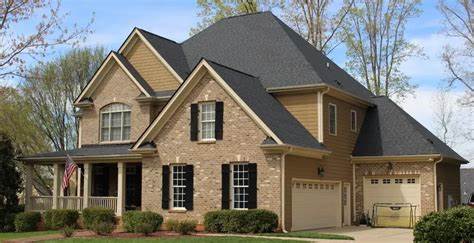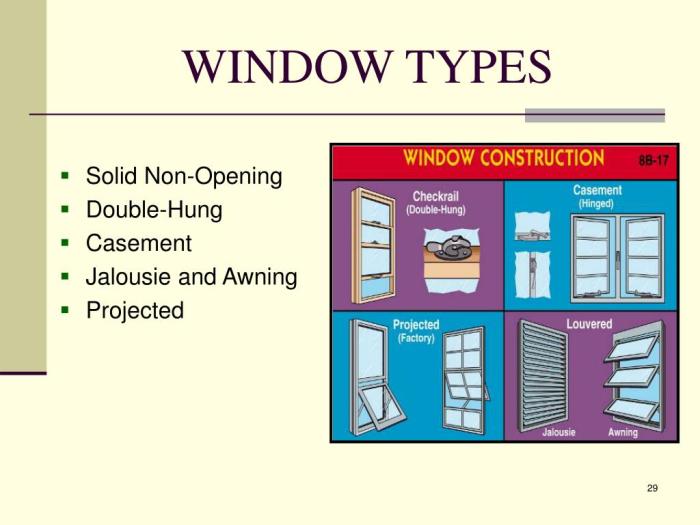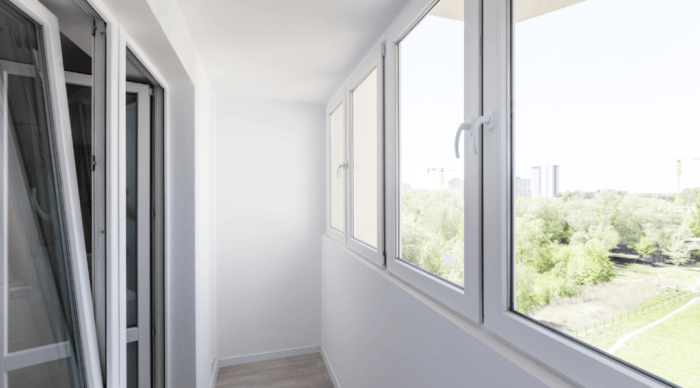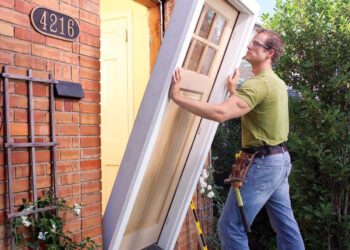Exploring the nuances of permits for windows, doors, and roofs opens up a world of regulations and requirements that property owners must navigate. This guide delves into the intricate details of permit processes, shedding light on the differences between each element and the various codes that govern their installation.

Windows Permits

Installing windows typically requires obtaining the necessary permits to ensure compliance with building codes and regulations. These permits are essential to guarantee the safety, structural integrity, and energy efficiency of the building.
Types of Window Permits
- Standard Windows: For regular window installations, a standard permit may be required. This involves submitting detailed plans and specifications to the local building department for approval.
- Specialty Windows: Installing specialty windows, such as large or uniquely shaped windows, may require additional permits due to their non-standard nature.
- Energy-Efficient Windows: Upgrading to energy-efficient windows often involves specific permits to ensure compliance with energy conservation regulations.
Variations in Window Permits
- Residential vs. Commercial: The permit process for windows may vary depending on whether the property is residential or commercial. Commercial properties may have additional requirements or inspections due to their larger scale.
- Location-Based Regulations: Certain locations may have specific regulations regarding window installations, such as historic districts or coastal areas. It is important to be aware of these regulations when applying for permits.
Doors Permits
Installing doors in buildings requires specific permits to ensure compliance with safety standards and building codes. These permits are essential to guarantee that the doors are installed correctly and meet the necessary requirements.
Permit Requirements for Interior and Exterior Doors
- Interior Doors: Generally, permits for interior doors focus on ensuring proper installation techniques and compliance with fire safety regulations if applicable.
- Exterior Doors: Permits for exterior doors may have additional requirements such as impact resistance for areas prone to severe weather conditions.
Safety Standards Covered by Door Permits
- Fire Safety: Permits for doors often include regulations to ensure fire-rated doors are installed in appropriate locations to prevent the spread of fire.
- Accessibility: Permits may also cover aspects related to accessibility standards, such as the width of the doors for wheelchair access.
Role of Permits in Compliance with Building Codes
- Building Codes: Permits for doors play a crucial role in ensuring that the installations adhere to building codes regarding structural integrity, safety, and functionality.
- Inspections: Permit approval may require inspections to verify that the doors are installed correctly and meet all the necessary standards before occupancy.
Roofs Permits

When it comes to roofing projects, obtaining the necessary permits is crucial to ensure compliance with local building codes and regulations. Failure to secure the proper permits can result in costly fines and delays in the project completion.
Roofing permits are typically required for both roof repair and roof replacement projects. The permitting process involves submitting detailed plans and specifications to the local building department for review. Once approved, work can commence under the supervision of a licensed contractor.
Common Permits for Roof Repair vs. Roof Replacement
- For roof repair, common permits may include minor repair permits for fixing leaks, replacing damaged shingles, or repairing flashing.
- For roof replacement, more extensive permits are needed to remove the old roof, install a new one, and ensure proper ventilation and insulation.
Additional Permits for Roof Modifications
Installing solar panels or making other modifications to the roof may require additional permits. This is to ensure structural integrity, safety, and compliance with energy efficiency standards.
Variations in Roofing Permits based on Materials Used
The type of roofing material used can also impact the permitting process. Different materials such as shingles, tiles, or metal roofs may have specific requirements to meet building codes and regulations.
Closure

In conclusion, understanding how permits vary for windows, doors, and roofs is crucial for any construction project. By grasping the specific requirements and regulations, individuals can ensure compliance and a smooth installation process. Dive deep into the realm of permits and unleash the potential for seamless building endeavors.
Query Resolution
Do different types of windows require specific permits?
Yes, varying types of windows such as standard, specialty, and energy-efficient windows may have different permit requirements based on factors like size and energy efficiency.
Are there safety standards covered in door permits?
Yes, door permits often encompass safety regulations to ensure that installations meet the necessary standards for security and functionality.
Do roof permits differ based on the roofing material used?
Indeed, roof permits can vary depending on the type of roofing material utilized, whether it's shingles, tiles, or metal.

 Installing windows typically requires obtaining the necessary permits to ensure compliance with building codes and regulations. These permits are essential to guarantee the safety, structural integrity, and energy efficiency of the building.
Installing windows typically requires obtaining the necessary permits to ensure compliance with building codes and regulations. These permits are essential to guarantee the safety, structural integrity, and energy efficiency of the building.
 When it comes to roofing projects, obtaining the necessary permits is crucial to ensure compliance with local building codes and regulations. Failure to secure the proper permits can result in costly fines and delays in the project completion.
Roofing permits are typically required for both roof repair and roof replacement projects. The permitting process involves submitting detailed plans and specifications to the local building department for review. Once approved, work can commence under the supervision of a licensed contractor.
When it comes to roofing projects, obtaining the necessary permits is crucial to ensure compliance with local building codes and regulations. Failure to secure the proper permits can result in costly fines and delays in the project completion.
Roofing permits are typically required for both roof repair and roof replacement projects. The permitting process involves submitting detailed plans and specifications to the local building department for review. Once approved, work can commence under the supervision of a licensed contractor.
 In conclusion, understanding how permits vary for windows, doors, and roofs is crucial for any construction project. By grasping the specific requirements and regulations, individuals can ensure compliance and a smooth installation process. Dive deep into the realm of permits and unleash the potential for seamless building endeavors.
In conclusion, understanding how permits vary for windows, doors, and roofs is crucial for any construction project. By grasping the specific requirements and regulations, individuals can ensure compliance and a smooth installation process. Dive deep into the realm of permits and unleash the potential for seamless building endeavors.












